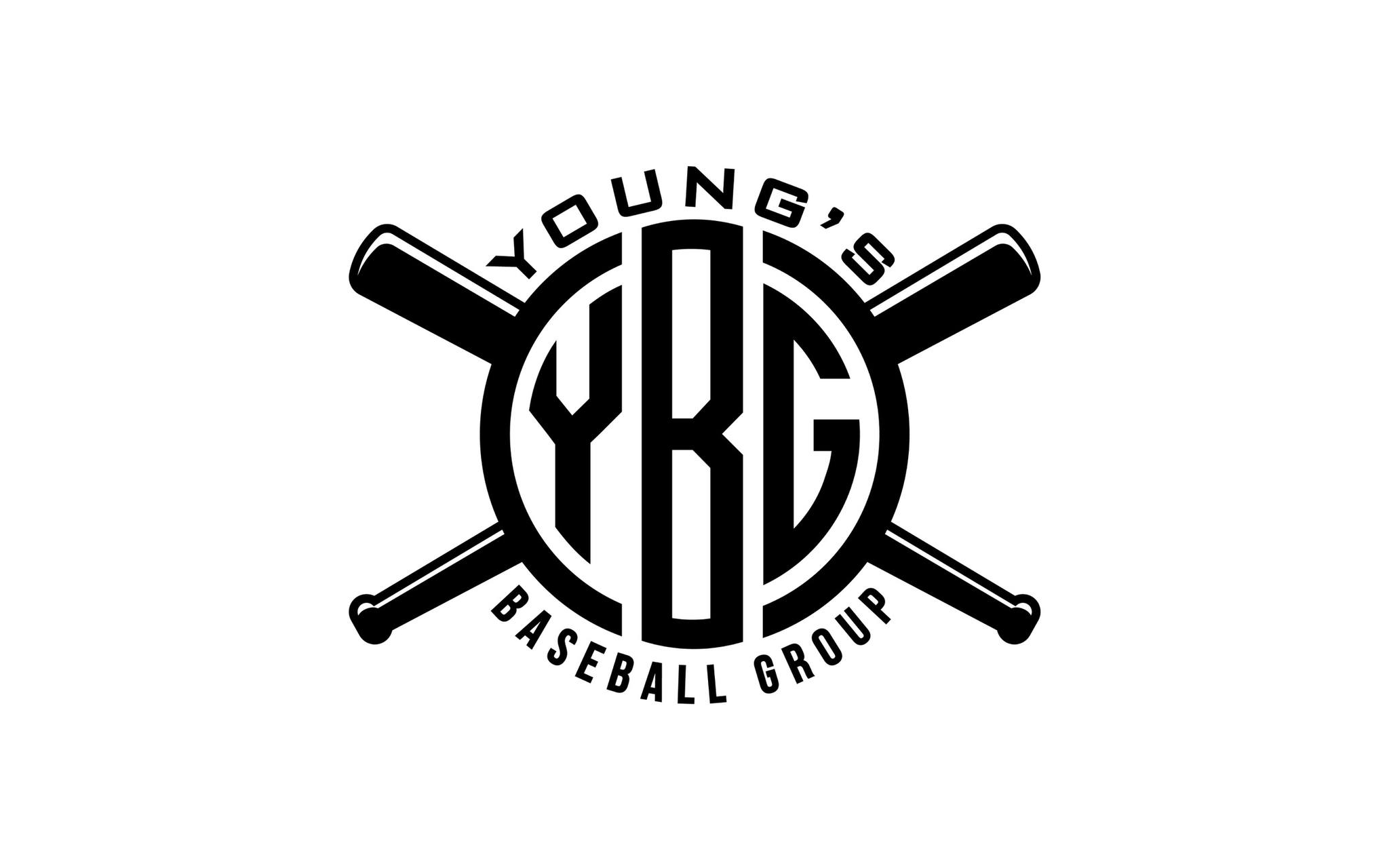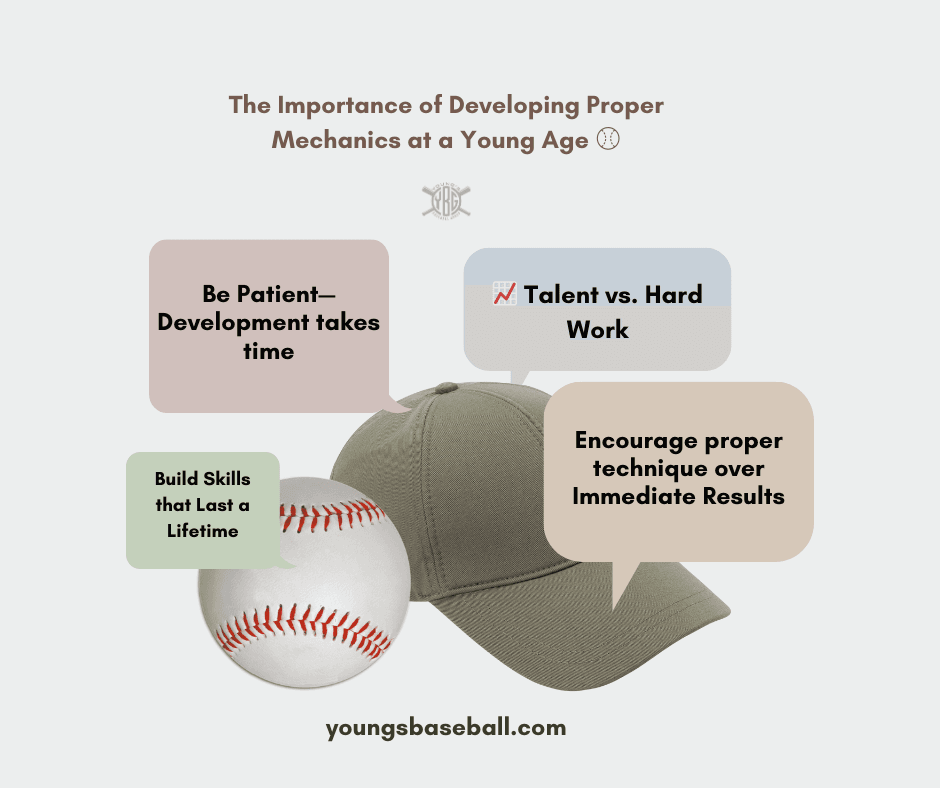One of the most important things for parents to understand in youth baseball is that every player develops at their own pace. Some kids are naturally gifted, while others need more time, effort, and coaching to refine their skills. But no matter where your child falls, one thing remains true—good mechanics matter!
Why Start Early?
Developing proper mechanics at a young age lays the foundation for long-term success. Fixing bad habits later is much harder than building good ones early. Solid fundamentals in hitting, throwing, and fielding help prevent injuries and improve performance.
At a young age, players are more receptive to instruction, and their muscle memory is still forming. Teaching good habits early ensures that when kids grow and gain strength, they maximize efficiency instead of correcting poor mechanics later. Proper training also builds confidence, helping players feel more in control and execute plays with precision.
Talent vs. Hard Work
Some kids naturally pick up skills, while others must work harder. That’s okay! The key is focusing on progress, not comparison. A player who develops strong mechanics early can often outlast raw talent in the long run.
Raw talent might allow a young athlete to excel early, but strong mechanics enable long-term growth and success. Mechanics create efficiency, reducing wasted movement and improving accuracy and consistency.
For example, a player with a strong arm but poor mechanics may get by at a young age. However, as competition increases, mechanical flaws can lead to injuries and inconsistency. On the other hand, a player who focuses on proper throwing form will see steady improvement and long-term success.
The Dangers of Rushing Development
Many parents and coaches push young players to throw harder, hit further, or play at higher levels before their bodies and mechanics are ready. This can lead to injuries, frustration, and burnout. Instead, the focus should be on quality reps, proper form, and age-appropriate training.
It’s natural to want quick results, but long-term development is a marathon, not a sprint. Overuse injuries, such as Little League elbow or rotator cuff problems, are increasing due to excessive throwing and poor mechanics. Prioritizing fundamentals helps prevent injuries and supports sustainable growth.
Rushing development can also lead to mental fatigue. When baseball becomes stressful instead of fun, young players may lose passion for the game. Allowing kids to develop at a steady, comfortable pace keeps their enthusiasm alive.
What Parents Can Do
- Prioritize proper technique over quick results
- Be patient—development takes time
- Find a coach or mentor who teaches mechanics and fundamentals
- Celebrate effort and improvement, not just wins and stats
- Keep training age-appropriate and fun
- Ensure proper rest and recovery
- Remember that baseball is a game of failure, and resilience is key
Final Thoughts
Baseball is a journey. Some kids excel early, while others take time to develop. The goal is to build skills that last a lifetime, not chase short-term success.
Trust the process. Focus on mechanics. Watch your young ballplayer thrive! When kids learn proper mechanics early, they have the best chance to stay healthy, perform well, and love the game for years to come.
#BaseballTraining #YouthBaseball #PlayerDevelopment #MechanicsMatter #TrustTheProcess #BaseballParents #CoachingKids #BaseballTips




